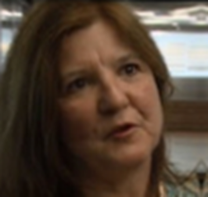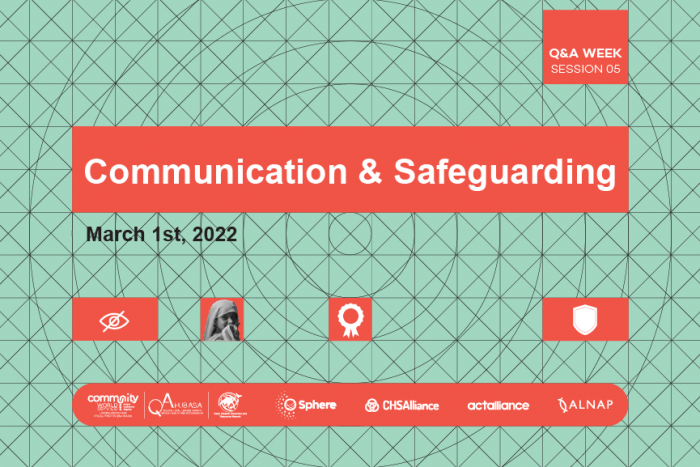Communication & Safeguarding
Format: Webinar: Presentation & Discussion
When: 1st March 2022
Time: 2.00 pm (PST)
Where: zoom – linked to be shared
Register: here
Language: English
Duration: 60 minutes
Presenter: Ms. Ester Dross
For: Safeguarding focal points, senior managers of national, international and regional NGOs and networks
Background:
Community World Service Asia (CWSA) is a humanitarian and development organisation registered in Pakistan, addressing factors that divide people by promoting inclusiveness, shared values, diversity, and interdépendance. CWSA is highly committed towards people centered aid and Accountability to Affected People. Over the last two years, we have offered different webinars, covering various aspects of safeguardbing and aiming to raise more awareness on key aspects of accountability, such as establishing efficient and transparent complaints systems and protection from and prevention of sexual exploitation, abuse and harassment (PSEAH). Safeguarding is a key pillar to any accountability measures that organisations must integrate into their programmes and working cycle.
When people we work with or for, feel unsafe within their workspace or global environment, this has critical negative impacts on the quality of our work and the objectives we intend to reach. It is therefore important that we are more aware and increase our efforts for a better understanding of the issues at hand.
This webinar is part of a series of 6 virtual learning events, covering safeguarding, key policies and minimum requirements, Complaints systems, Complaints handling and Managing investigations and Communication. The last webinar will be dedicated to experience sharing and best practices. We have so far spoken generally about safeguarding and how three different organisations developed and set up their safeguarding framework, followed by an interactive session where participants explored the key policies and guidelines they need to have in place in terms of safeguarding. During our third webinar, we tried to understand what we need to ensure in order to set up robust complaints systems and allow all stakeholders to have a voice and report any concern they have when benefitting from activities of or working with our organisations. The last time we met, we also talked about understanding fair and independent investigation processes, looking at them through three different perspectives; that of organisations, investigators and survivors.
Objectives:
At our fifth webinar, scheduled for the 1st March 2022, we want to try and better understand how we can ensure an inclusive and thorough communication with regards to safeguarding, complaints handling and investigations.
This webinar will explore:
- The communication tools and platforms required to ensure complete understanding of safeguarding and all related processes among affected communities
- How we can contextualize this communication
- What we need to communicate and to whom when it comes to complaints handling and outcomes of an investigation
Moderator & Presenter:
Ester Dross—Independent Consultant

Ms. Dross is an indépendant consultant with over 25 years of expérience, specializing in accountability, prevention of sexual exploitation and abuse, gender and child protection. Ms. Dross has had an extensive exposure to humanitarian certification systems and accountability to affected populations while working with HAP International as their Complaints Handling and Investigation Advisor, later as their Certification Manager. She has been closely involved in the Building Safer Organisations Project since 2005, dealing with sexual exploitation and abuse of bénéficiaires, particularly focusing on gender and child protection. Over the last 6 years and since working as an independent consultant, Ester has been leading a pilot projet for FAO on accountability and gender mainstreaming in emergencies and working with numerous NGOs including ACT Alliance members, supporting and training their staff on gender issues, child protection.







